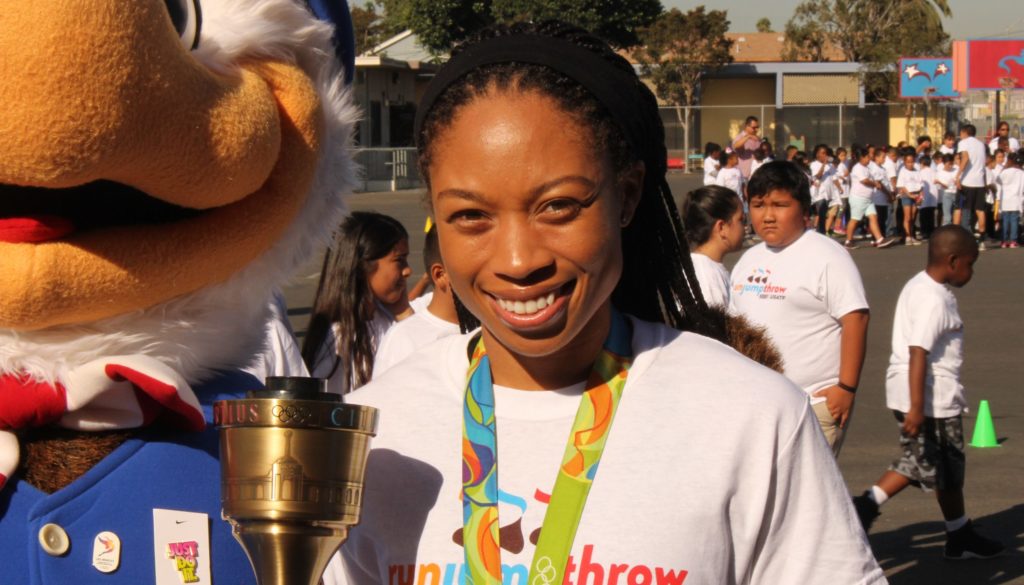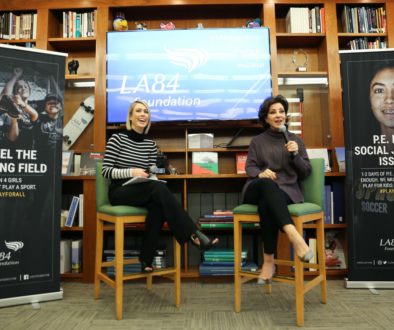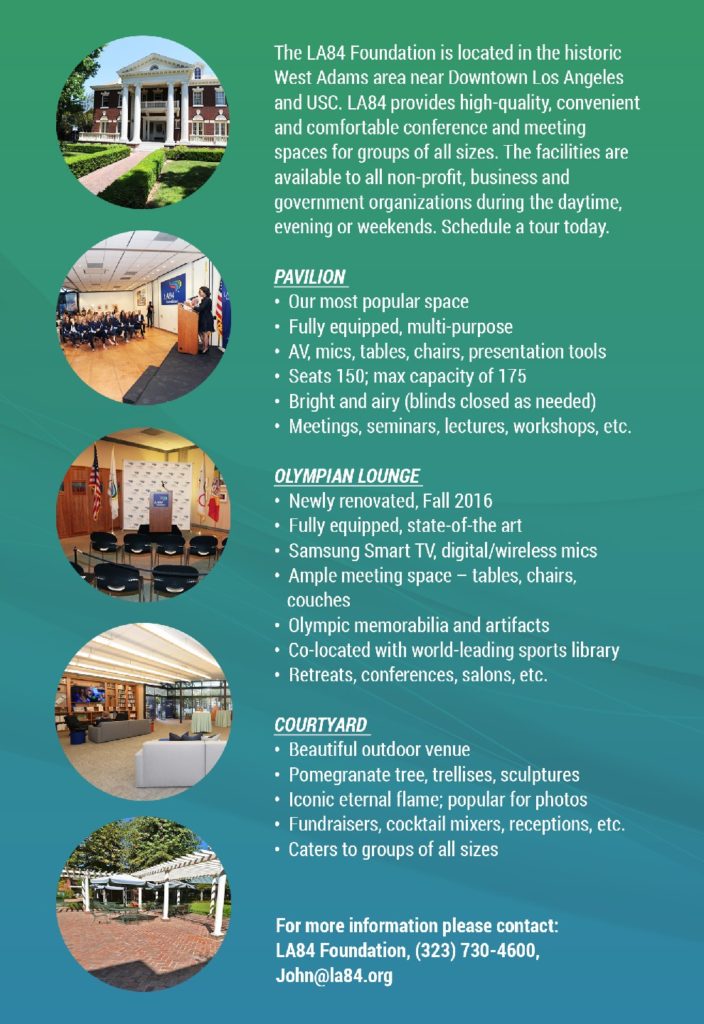Allyson Felix: Running Toward Success with Youth Sports
Editor’s Note: An LA84 grant to the USC Annenberg Institute of Sports, Media and Society funded three reporters to attend, report and write stories from the 2017 IAAF World Championships in London.
By Samuel Dodge
When she’s not carrying a Fort Knox amount of gold around her neck, Allyson Felix’s focus shifts to her second passion. Youth sports and education.
On Wednesday, Felix will seek to fill out her trophy case — one with six Olympic gold medals — with her 10th World Championship title. She has the year’s best time in the women’s 400 meters, 49.65, on this same Olympic Stadium track, at a meet in July. Her accomplishments on the track are perhaps only rivaled by her resume off it.
Where to start?
She served on President Obama’s Council for Fitness, Sports and Nutrition, which sets physical fitness standards for public school districts. She’s a SportsUnited Envoy, a U.S. Department of State position created to foster youth development in leadership, communication, and academics. In that function, she visited Brazil some three years ago with Paralympian 100m gold medalist Josh George to conduct athletic clinics and leadership workshops for more than 500 disadvantaged youth. The list goes on, people, but you get the idea.
“I’m not where I am today,” said Felix, “without getting outside as a kid. It didn’t matter if we were playing tag in our neighborhood, or playing basketball for local clubs. Movement was always encouraged.”
This early movement first manifested itself in basketball, giving her “springy-ness,” as she puts it. She hit the track at age 15, and she quickly became a California state Champion in the 200m and 400m.
“Honestly,” she said, “sports did more for me socially than athletically. Learning how teammates can lift you higher, make you faster, that was vital. Also, just running around connected me with friends. It teaches empathy.”
Youth sports is often used as a way to combat juvenile violence in disadvantaged communities. In a bid to reach these communities, Felix has worked with several non-profit organizations, from the LA84 Foundation to the Aspen Institute’s Project Play Initiative. The LA84 Foundation gives grants to Los Angeles-based youth sports groups and clubs. The Washington, D.C.-based Aspen Institute seeks to act as a forum for leadership development.

“Sports,” Felix said in a panel for the Aspen Institute in March 2015, “teach kids confidence. You need that to emerge from bad situations. If a kid can make a connection with a teammate, they can be pushed higher. It also makes sports fun!”
She consistently thanks her parents for their guidance. Her father, Paul, is an ordained minister at the Master’s Seminary of Santa Clarita, Calif., and her mother, Marlean, is an elementary school teacher at the Balboa Magnet Elementary School of Northridge, in Los Angeles’ San Fernando Valley.
According to the U.S. Census Bureau, there are 12 million single-parent families, and 40 percent of those live below the poverty line. In Felix’s Los Angeles County, one in four children live in single-parent households, according to the LA Times. This shaped her thinking as she earned her bachelor’s degree in 2008 from the University of Southern California in elementary education. A teacher — just like her mom. “I’m going to keep working,” she said, “even after running.”
She runs again Wednesday night.





